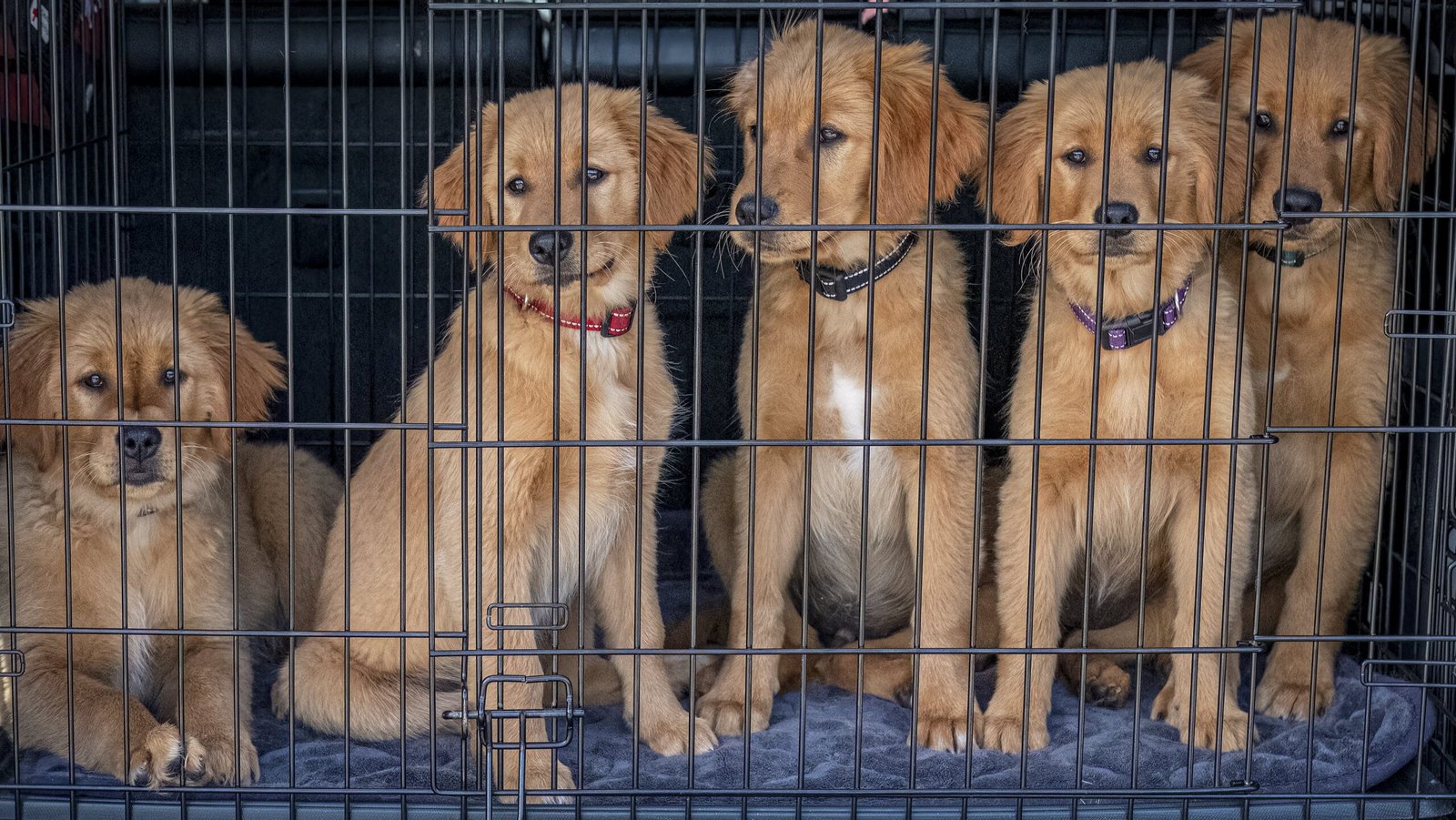Table of Contents
Are you a pet lover living in Singapore? If so, you may be wondering about the process of registering your furry friend. Well, fret not! In this step-by-step guide, we will walk you through the simple and hassle-free process of registering your dog in Singapore. From gathering the necessary documents to filling out the application form, we’ve got you covered. So, let’s get started on ensuring your canine companion is officially recognized and protected in this vibrant city-state.

Step 1: Check eligibility requirements for dog ownership
Ensure you meet the minimum age requirement
Before you embark on the journey of owning a dog in Singapore, it’s essential to ensure that you meet the minimum age requirement set by the authorities. Currently, the minimum age for dog ownership is 21 years old. So, if you’re 21 or above, congratulations! You’re eligible to own a furry companion in Singapore.
Check if your residence allows dog ownership
While you may meet the age requirement, it’s crucial to check if your place of residence permits dog ownership. Certain housing developments, such as HDB flats, have specific rules and regulations regarding pet ownership. These rules are in place to ensure the well-being of both the residents and the animals. Before bringing a dog into your HDB flat, you must ensure that your residence is dog-friendly and complies with all the necessary guidelines.
Verify if your dog’s breed is restricted
In Singapore, there are certain dog breeds that are not allowed to be kept as pets due to safety concerns or their potential to cause public nuisance. As a responsible dog owner, it’s crucial to verify if your preferred breed is not on the Restricted Breed List. Breeds like Pit Bulls, Akita, and Doberman Pinschers, among others, are included on this list. Familiarize yourself with these restrictions to ensure that you select a breed that is eligible for ownership.
Find out if your dog needs to be licensed
Dog licensing is a legal requirement in Singapore to ensure a safe and responsible dog ownership environment. Most importantly, it helps to ensure the health and safety of both dogs and the community. Before bringing your furry friend home, check if your dog needs to be licensed. Typically, all dogs older than three months must be licensed with the Agri-Food & Veterinary Authority of Singapore (AVA).
Step 2: Microchip your dog
Understand the importance of microchipping
Microchipping your dog is one of the best ways to ensure their safety and welfare. A microchip is a small electronic device that is implanted under your dog’s skin, typically between the shoulder blades. It contains a unique identification number that can be scanned by a microchip reader. Should your dog ever get lost, the microchip allows animal shelters, veterinary clinics, and authorities to identify and reunite you with your furry friend.
Select a veterinarian to perform the microchipping
Microchipping should always be performed by a qualified veterinarian or under their supervision. It’s essential to choose a reputable and experienced veterinarian who can ensure the procedure is done safely and effectively. They will also be able to provide you with valuable guidance on the process and answer any questions or concerns you may have.
Ensure your dog’s microchip is internationally recognized
If you plan to travel with your dog or move to another country in the future, it’s crucial to ensure that your dog’s microchip is internationally recognized. It should comply with the ISO Standard 11784 or Annex A of ISO Standard 11785. This will enable your dog’s microchip to be scanned and read by any microchip reader worldwide, ensuring seamless identification, regardless of geographical location.

Step 3: Vaccinate your dog
Familiarize yourself with the required vaccinations
Vaccinating your dog is essential to protect them from various diseases and to ensure a healthy life. There are several vaccinations that are recommended and may be required by law for dogs in Singapore. Some common vaccinations include distemper, parvovirus, hepatitis, and rabies. Consult with your veterinarian to determine the specific vaccinations required for your dog based on their age, breed, and health condition.
Make an appointment with a veterinarian
Once you have familiarized yourself with the necessary vaccinations, it’s time to schedule an appointment with a veterinarian. They will administer the vaccines and provide you with further guidance on the vaccination schedule and any potential side effects. It’s essential to follow the veterinarian’s instructions and keep up with your dog’s vaccination schedule to ensure their optimal health and protection.
Keep a record of your dog’s vaccinations
It’s crucial to maintain a record of your dog’s vaccinations for future reference and compliance with legal requirements. Keep a copy of the vaccination certificate provided by your veterinarian, as this document serves as proof of your dog’s vaccination history. You may need this information when applying for a pet license or when moving to a different location that requires proof of vaccination.
Step 4: Obtain a pet license
Visit a veterinary clinic to apply for a pet license
Obtaining a pet license is a legal requirement for dog owners in Singapore and plays a vital role in ensuring responsible pet ownership. To obtain a pet license, visit a veterinary clinic that is authorized by the AVA to process pet licenses. They will guide you through the application process and provide you with the necessary forms and information.
Bring necessary documents
When applying for a pet license, ensure that you bring along all the necessary documents. This typically includes your identification documents (such as NRIC or passport), proof of residence, your dog’s vaccination certificate, and any other relevant documentation. These documents will be verified by the veterinary clinic to ensure compliance with the licensing requirements.
Pay the license fee
There is a fee associated with obtaining a pet license in Singapore. The fee may vary depending on factors such as your residence type and if your dog is sterilized. Ensure that you have the necessary funds to pay the license fee, as it is a mandatory requirement for dog ownership. The fee contributes to various initiatives aimed at promoting responsible pet ownership and the well-being of animals in Singapore.
Collect your pet license
Once you have completed the application process and paid the license fee, you will receive your pet license. This license acts as proof of ownership and compliance with dog ownership regulations in Singapore. Keep this document in a safe place and ensure that it is easily accessible when required.

Step 5: Register your dog with the Agri-Food & Veterinary Authority of Singapore (AVA)
Access the AVA online portal
The Agri-Food & Veterinary Authority of Singapore (AVA) is the governing body responsible for overseeing animal welfare and veterinary matters in Singapore. They have an online portal that allows dog owners to register their dogs conveniently. To register your dog, access the AVA’s online portal through their official website.
Create an account
To register your dog with the AVA, you will need to create an account on their online portal. This account will enable you to access various services related to dog ownership, such as updating information and applying for licenses. Provide the necessary information, including your personal details and contact information, to create your account.
Fill in the necessary information
Once you have created an account, you will need to fill in the necessary information about your dog. This includes details such as your dog’s breed, color, gender, date of birth, and the unique identification number of their microchip. Double-check the information before submitting to ensure accuracy.
Upload required documents
Along with providing information about your dog, you may need to upload certain documents as part of the registration process. This may include your dog’s vaccination certificate, proof of residence, and any other documentation required by the AVA. Make sure to have these documents ready in a digital format for easy uploading.
Submit your dog’s registration
Once you have filled in all the required information and uploaded the necessary documents, review all the details to ensure accuracy. Once you are satisfied, submit your dog’s registration through the AVA’s online portal. The AVA will process your registration and notify you of its completion. Keep a record of the registration confirmation for your reference.
Step 6: Attend a dog training course (if applicable)
Determine if your dog requires training
While not mandatory for all dogs, attending a dog training course can be highly beneficial for both you and your furry friend. Training helps ensure that your dog is well-behaved, obedient, and socialized, creating a harmonious living environment for everyone. Assess your dog’s behavior, socialization, and training needs to determine if attending a dog training course is necessary.
Search for approved dog training providers
If you determine that your dog requires training, it’s important to choose an approved dog training provider. The AVA has a list of accredited and approved dog training providers in Singapore. These providers adhere to certain standards and practices, ensuring that your dog receives proper training in a safe and professional environment. Research and select a training provider that aligns with your dog’s specific needs.
Enroll your dog in a training course
After finding a suitable dog training provider, proceed to enroll your furry friend in a training course. Consult with the training provider to determine the most appropriate course for your dog’s age, breed, and behavior. Ensure that you understand the course syllabus, training methods, and any necessary prerequisites before enrolling.
Complete the course and obtain necessary certification
Throughout the training course, actively participate and learn alongside your dog. Follow the trainer’s instructions and practice the training techniques consistently. Once the course is completed, you will receive a certificate of completion or other necessary certification. Keep this certification safe, as it may be required for future references, licensing, or competitions if you and your dog decide to pursue further training endeavors.
Step 7: Comply with responsible dog ownership regulations
Ensure your dog wears a collar with identification
As a responsible dog owner, it’s essential to ensure that your dog wears a collar with proper identification at all times. The identification should include your dog’s name and your contact information, such as your phone number. This simple measure helps in identifying your dog if they happen to get lost, ensuring a swift reunion.
Keep your dog on a leash in designated areas
In public spaces and areas where dogs must be leashed, it’s crucial to keep your four-legged companion on a leash at all times. This ensures the safety of your dog, other animals, and people around you. Follow leash control guidelines and only unleash your dog in designated off-leash areas, such as dog parks or specified areas within parks. Always prioritize the well-being and comfort of those around you.
Clean up after your dog in public spaces
Maintaining cleanliness and hygiene in public spaces is an important aspect of responsible dog ownership. Always carry waste disposal bags with you and clean up after your dog whenever they relieve themselves. Not only does this show consideration for others who use the same spaces, but it also helps to build a positive image of responsible dog owners in the community.
Prevent your dog from becoming a nuisance to others
Your dog’s behavior plays a significant role in the overall dog-owning experience for both you and others. It’s essential to prevent your dog from becoming a nuisance or causing discomfort to others. This includes keeping your dog from excessive barking, respecting others’ personal space, and avoiding situations where your dog’s behavior may cause fear or distress. Responsible dog ownership goes hand in hand with mutual respect and consideration for others.
Step 8: Update any changes to your dog’s information
Inform AVA about changes in your dog’s ownership or address
If there are any changes in your dog’s ownership or your address, it’s important to inform the AVA promptly. This ensures that their records are up to date and accurate. Contact the AVA through their online portal or other designated channels to provide the necessary updates. Keeping your dog’s information current allows for smooth communication, future licensing, and compliance with regulations.
Update your dog’s microchip information
In addition to notifying the AVA about changes in ownership or address, it’s vital to update your dog’s microchip information as well. If there are any changes to your contact information, such as a new phone number or email address, make sure to update it with the microchip database provider. This ensures that your dog’s identification remains accurate, promoting their safety and security.
Step 9: Renew your dog’s pet license annually
Check the renewal deadline
Dog licenses in Singapore usually need to be renewed annually. It’s essential to be aware of the renewal deadline and ensure that you submit all the necessary documents and fees on time. Mark the renewal date on your calendar or set reminders to ensure that you don’t miss the deadline.
Visit a veterinary clinic for license renewal
To renew your dog’s pet license, visit a veterinary clinic authorized by the AVA. They will guide you through the renewal process and provide you with the necessary forms. Ensure that you bring along any required documents, including your dog’s vaccination certificate, as they may be needed for renewal.
Pay the renewal fee
Similar to obtaining a pet license, there is a renewal fee associated with renewing your dog’s license. The fee may vary depending on factors such as your residence type and if your dog is sterilized. Make sure to check the exact fee and come prepared to pay it at the veterinary clinic. Your compliance with the renewal fee contributes to the continued support and initiatives for responsible pet ownership.
Collect your renewed pet license
Once you have completed the renewal process and paid the necessary fee, you will receive your renewed pet license. This updated license serves as proof of your continued compliance with dog ownership regulations. Keep this document in a safe place alongside your previous license for easy access and future reference.
Stay updated on any changes in dog ownership regulations
As a responsible dog owner, it’s crucial to stay informed about any changes or updates in dog ownership regulations in Singapore. Dog-related laws and regulations may evolve over time, and it’s essential to keep up-to-date with these changes that might affect you and your furry friend. Regularly check the AVA’s official website or other trusted sources for any new announcements or guidelines.
Adhere to leash control and designated area rules
Leash control and designated area rules exist to ensure the safety and well-being of both dogs and the community. Stay informed about the specific rules and regulations in your area and adhere to them diligently. This includes keeping your dog leashed in public spaces unless in designated off-leash areas. By following these rules, you contribute to a harmonious environment and set an example for responsible dog ownership.
Be aware of penalties for non-compliance
Non-compliance with dog ownership regulations can result in penalties and legal consequences. Familiarize yourself with the potential penalties for non-compliance, including fines, restrictions, or even confiscation of your dog. By being aware of these consequences, you can ensure that you prioritize responsible dog ownership and comply with all necessary requirements.
Owning a dog in Singapore comes with its own set of responsibilities, but it is also a rewarding and fulfilling experience. By following this step-by-step guide, you can navigate the process of registering your dog in Singapore with ease and ensure that you are a responsible dog owner who contributes to the well-being of your furry friend and the community as a whole. Remember, being a responsible dog owner involves continuous learning, adaptability, and prioritizing the welfare and happiness of your beloved companion.



